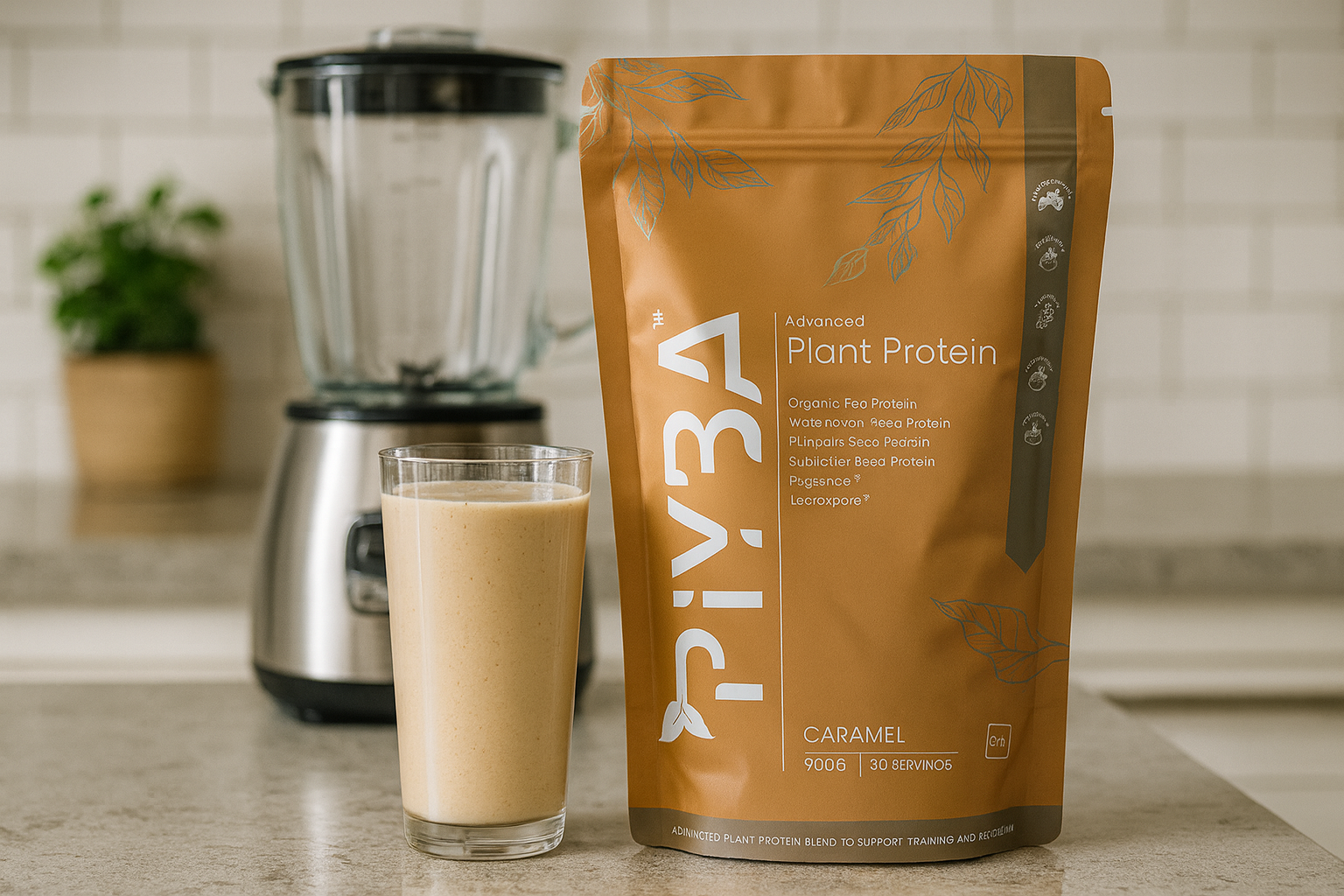I. Introduction
"Can you really build muscle without meat?" It's a question that sparks debate in gyms and wellness forums worldwide. The truth? You absolutely can and the science backs it.
As more athletes, trainers, and fitness enthusiasts transition to a plant-based diet, we're seeing a powerful shift in how people think about strength and performance. You don’t need to sacrifice muscle to eat clean, compassionate, and sustainable. You just need the right strategy.
This article is your blueprint for building muscle on plants—without compromising results.
II. The Plant-Based Muscle Myth: Debunked by Science
A. Muscle Growth 101: What You Actually Need
Muscle doesn’t come from steak—it comes from stimulus and recovery. To build muscle, you need three key components:
-
Resistance training to create microtears in the muscle.
-
Sufficient protein, especially rich in leucine, to stimulate muscle protein synthesis (MPS).
-
Recovery, including sleep, hydration, and calorie surplus (for growth phases).
Animal protein isn't the only source of these requirements. In fact, plant proteins can deliver all the muscle-building essentials—if you know how to optimize your intake.
B. Research Comparing Plant and Animal Protein
Multiple studies have shown that pea protein and other plant-based sources can rival whey protein in supporting muscle gains, provided intake is consistent and properly dosed.
For instance, pea protein is rich in BCAAs, particularly leucine, and when consumed in the right amounts (20–30g per meal), it activates MPS comparably to animal protein. Blends like Phyba Phyto-Fusion, which combine complementary plant sources, are specifically designed to meet these criteria and outperform many single-source options.
III. Key Nutrients for Building Muscle on a Plant-Based Diet
A. Protein (Types, Quality, and Completeness)
Plant proteins vary in amino acid profiles. Some, like legumes, lack methionine; others, like seeds, lack lysine. But when combined—such as pea with pumpkin or sunflower seed protein—they create a complete amino acid profile.
Aim for 1.6 to 2.2 grams of protein per kilogram of body weight daily. Distribute intake across meals to ensure MPS is activated multiple times per day.
B. Leucine, BCAAs, and Amino Acid Balance
Leucine is the key trigger for MPS. Research shows you need at least 2–3 grams per meal to maximize growth. Blends like Phyba provide a well-balanced spectrum of leucine, isoleucine, and valine, making it a BCAA-rich option for post-workout recovery.
C. Micronutrients: Zinc, Iron, Magnesium, and Vitamin B12
Building muscle isn’t just about protein—it’s about absorption and recovery.
-
Zinc: Supports testosterone and immune health.
-
Iron: Needed for oxygen delivery to muscles.
-
Magnesium: Aids recovery, reduces cramps.
-
B12: Essential for energy metabolism.
Pumpkin seeds, leafy greens, and fortified foods help—but supplementation is often wise for B12 and iron.
IV. Best Plant-Based Protein Sources for Muscle Building
A. Whole Foods (Lentils, Chickpeas, Tofu, etc.)
Whole plant foods like:
-
Tofu & Tempeh: Complete proteins with calcium.
-
Legumes (lentils, chickpeas): Protein, fiber, and iron.
-
Quinoa, buckwheat: High-protein pseudo-grains.
-
Nuts/seeds: Add calories and protein for bulking.
Mix and match for diversity. Pair grains with legumes for complete amino acid profiles.
B. High-Performance Blends (e.g., Phyba Phyto-Fusion)
Phyba’s quad-protein blend includes:
-
Pea: BCAA-rich and well-tolerated.
-
Pumpkin & Sunflower Seeds: Add methionine, zinc, vitamin E.
-
Watermelon Seed: High in citrulline for blood flow and recovery.
Plus, Phyba features GUT MATRIX™—a combination of aloe vera, glucomannan, and probiotics to aid digestion and absorption. It’s not just protein—it’s a gut-friendly, performance-enhancing stack.
V. Supplements to Maximize Plant-Based Muscle Growth
A. Creatine (Vegan-Friendly)
Creatine monohydrate is one of the most studied and effective supplements for muscle growth—and it’s vegan. It improves strength, performance, and cellular hydration. A must-have, especially for plant-based athletes whose diets lack natural creatine.
B. Plant-Based Protein Powders with Digestive Support
Digestibility is critical. Phyba includes prebiotics and probiotics to:
-
Reduce bloating
-
Improve nutrient absorption
-
Support a healthy gut microbiome (linked to performance and immunity)
That means better protein uptake—and better gains.
C. Omega-3s and Recovery Aids
Plant-based omega-3s (from chia, flax, or algae oil) support:
-
Inflammation control
-
Joint health
-
Muscle recovery
Pair with magnesium, tart cherry extract, and adaptogens (e.g., ashwagandha) to enhance sleep and muscle repair overnight.
VI. Sample Training + Nutrition Plan for Muscle Gains
Training
-
4–5 days/week strength-focused sessions
-
Focus on compound lifts (squats, presses, pulls)
-
Progressive overload is key
Sample Day
-
Breakfast: Tofu scramble with avocado and wholegrain toast
-
Snack: Smoothie with Phyba, frozen berries, flaxseed, oat milk
-
Lunch: Quinoa salad with chickpeas, roasted veggies, tahini
-
Snack: Banana with almond butter
-
Dinner: Lentil pasta, sautéed spinach, walnut pesto
-
Post-Workout: Phyba Phyto-Fusion + creatine + plant milk
VII. Conclusion: Why Plant-Based Muscle is the Future
Building muscle on plants isn’t just possible—it’s powerful.
You reduce inflammation, recover faster, and gain lean muscle—all without compromising your ethics or the planet. With smart strategies, complete proteins, and targeted supplementation like Phyba Phyto-Fusion, you can train hard, recover fully, and thrive on a plant-based diet.
The future of muscle isn’t about meat. It’s about knowledge, strategy, and the power of plants.



